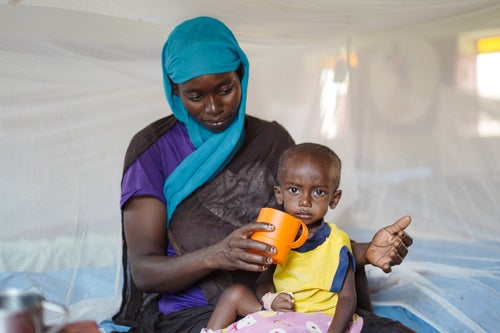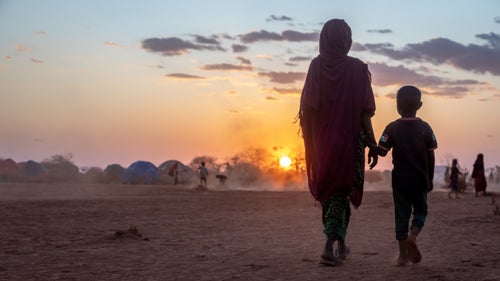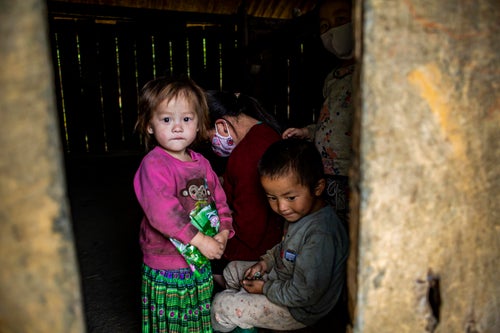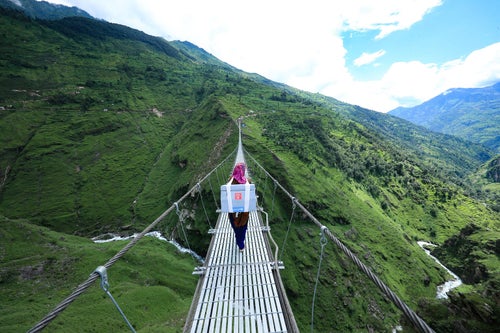Across the world, almost 8 million children are at risk of irreversible outcomes from severe acute malnutrition if they don’t receive immediate treatment.
The physical and cognitive damage incurred from inadequate nutrition in utero and during the first two years of life are permanent and irreversible.
What is stunting and what causes it?
Stunted growth, or stunting, is a life-threatening condition that is a result of chronic nutritional deficiencies. Childhood stunting is an irreversible outcome of growth failure in the first 1000 days of life, from pregnancy through to a child’s second birthday.
The causes of stunting are many. They include poverty, urban-rural inequality, gender inequalities (where women have little education, information, limited access to health services), poor diet, food insecurity, low quality of foods, and poor hygiene, water and sanitation.
It can be prevented.
Exclusive breastfeeding for the first six months, followed by nutritious foods from six months, are the most important factors in healthy development and child survival, and could reduce overall under five child mortality from severe forms of malnutrition by 19 percent.
The below infographic explains the different forms of malnutrition.
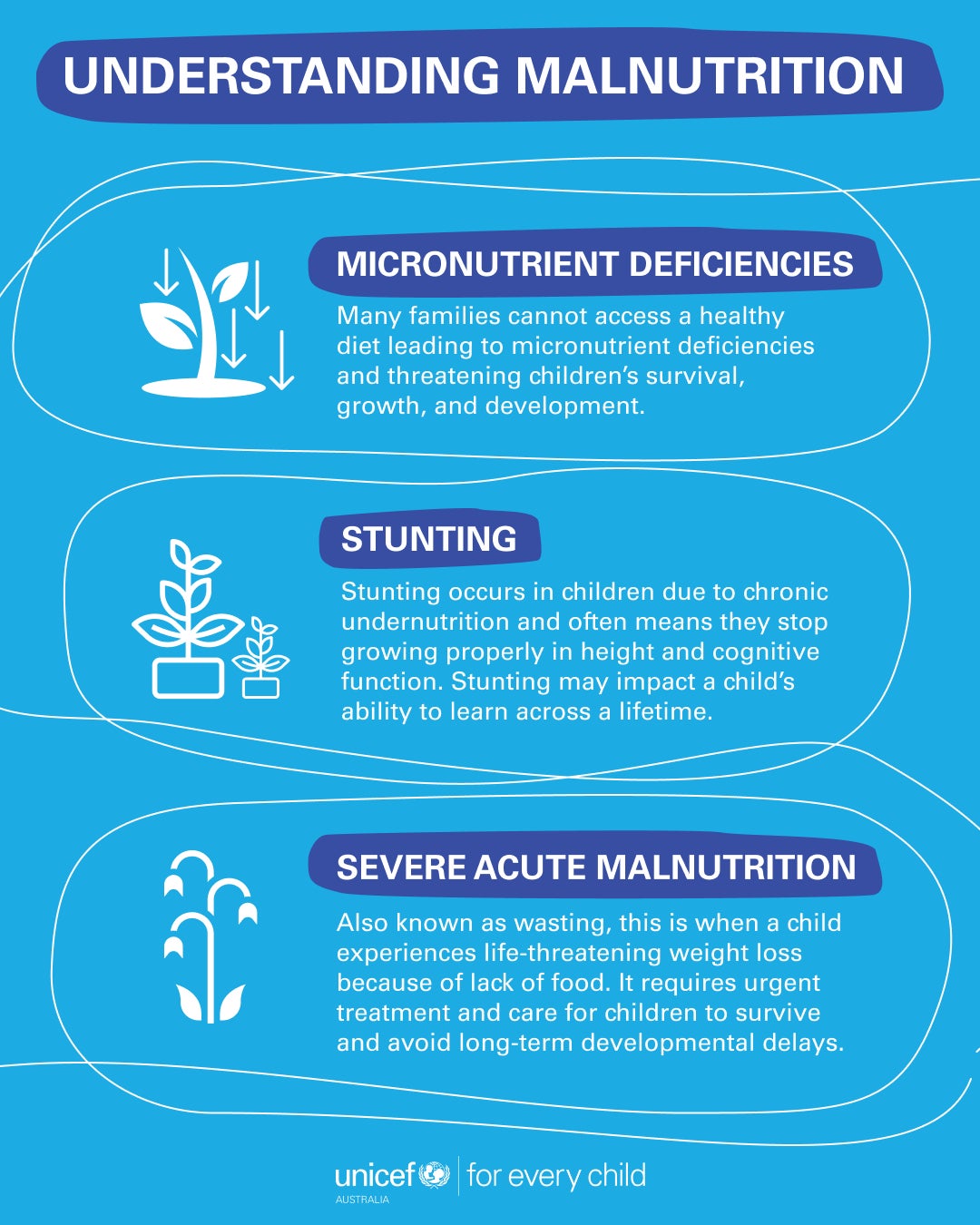
How is UNICEF making a difference?
UNICEF is working around the world providing immediate care in emergency settings in places like Somalia, Afghanistan and Yemen as well as through our long-term development programs .
Alongside our partners, we provide nutrition support and life-saving therapeutic food to caregivers and children. We are improving outcomes for whole communities by educating parents on nutrition practices.
We also support health workers to screen children to identify malnutrition early and provide critical treatment to help them recover.
Scaling up Nutrition in Zambia
In Zambia, 35 per cent of children are stunted at five years old. To combat this a UNICEF supported program aims to scale up nutrition education across 17 districts in Zambia -- working with caregivers and vulnerable families.
Volunteers, called NSG’s (Nutritional Support Groups) go into communities to educate families on nutrition and hygiene practices in households with adolescent girls, pregnant women, breastfeeding women, children under two years of age, and women of reproductive age.
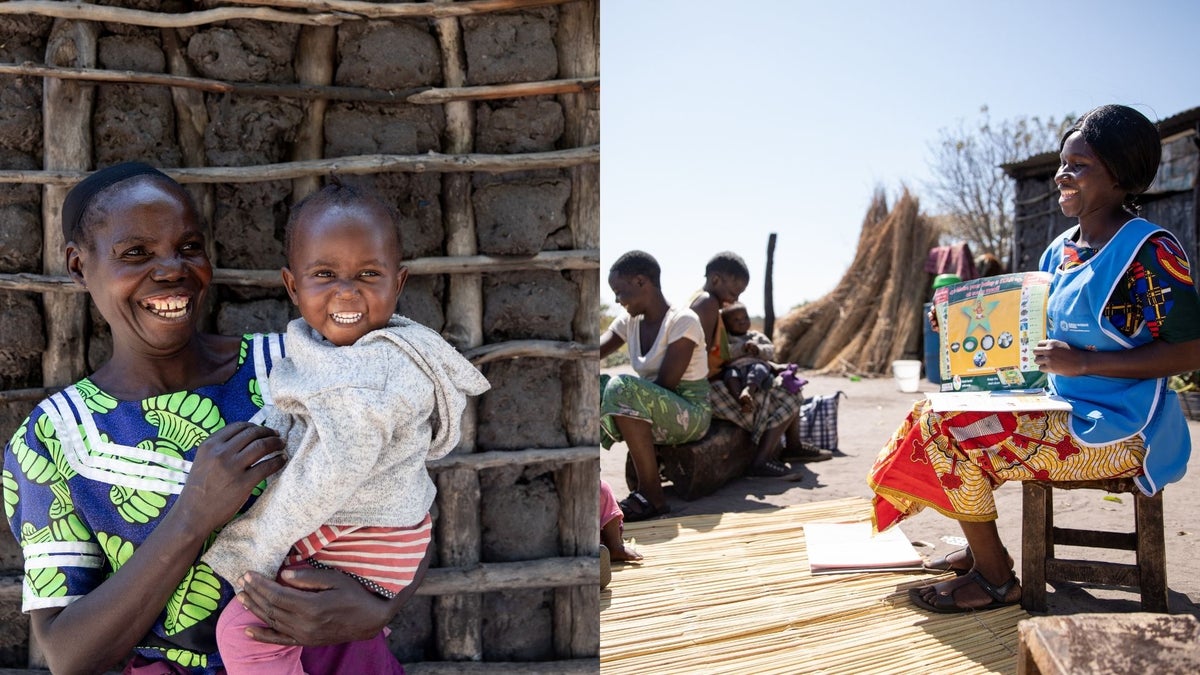
“The most important thing I teach is the importance of nutrition and how to avoid malnutrition by eating a balanced meal using food we can produce locally.” Namakolu, NSG Volunteer
“When Namakolu visits, she teaches us how to prepare good meals for our family so that the children are eating properly and she also teaches us about good hygiene.” Lillian, grandmother of five
The aim of the program is to reduce stunting in children under two by seven per cent, with a focus on the importance of the first 1000 days of a child’s life – from conception to 2 years old.
Extreme weather events and stunting
Across Indonesia, rising temperatures, changing rainfall patterns and extreme weather events such as drought and floods driven by climate change have resulted in a decline in the quantity and quality of food being produced in some regions of the country.
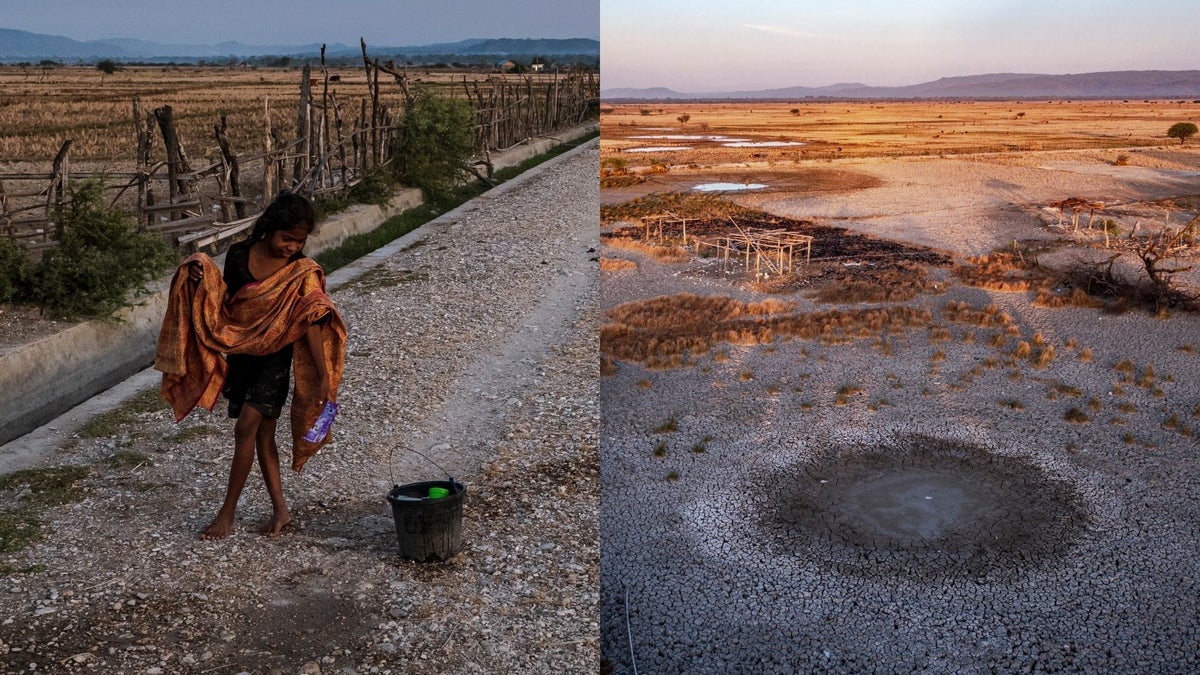
In East Nusa Tenggara Province, malnutrition runs high. In a population where families rely upon farming for their livelihoods, any decline in food production will result in less nutritional food being available for them. More than 12 per cent of children suffer from severe acute malnutrition or wasting, and 42 per cent suffer from stunting.
Adriana’s husband harvests and sells tamarind and cashew nuts but changing rainfall patterns have caused a reduction in harvests, which led them to earn less than half of what they would usually earn throughout the year.
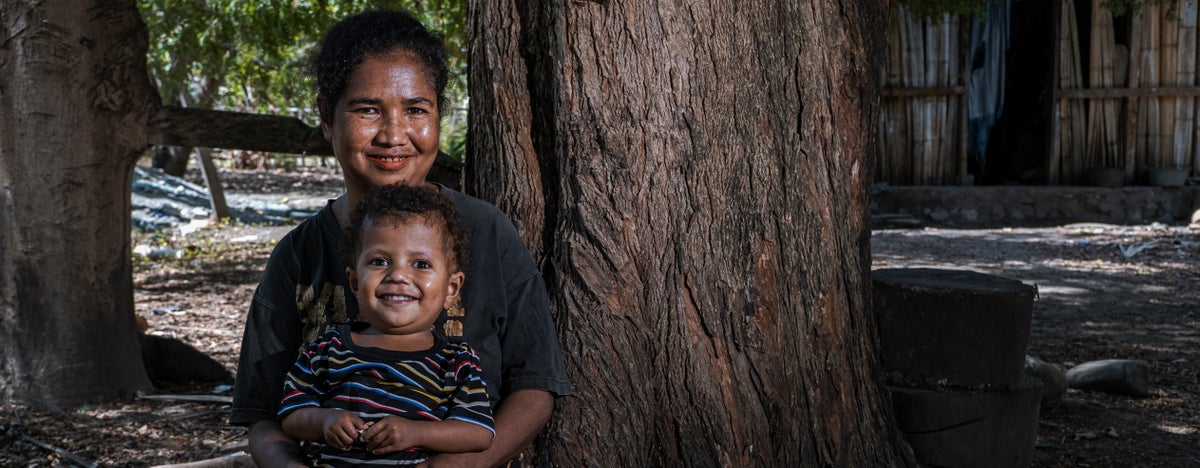
Adriana’s two-year-old daughter, Trinovera, was diagnosed with malnutrition in August 2022. Her parents have since received nutrition counselling and nutritional support, to help Trinovera with her recovery.
For years, UNICEF has been working with the Indonesian Government, partners and communities on malnutrition prevention, treatment, and care. UNICEF also supports efforts to raise awareness on climate change and aims to make food systems more climate resilient.
Your support makes it possible for UNICEF to provide happier futures for families like Adriana’s, free from the long-term impacts of stunting.
Related articles
Stay up-to-date on UNICEF's work in Australia and around the world





